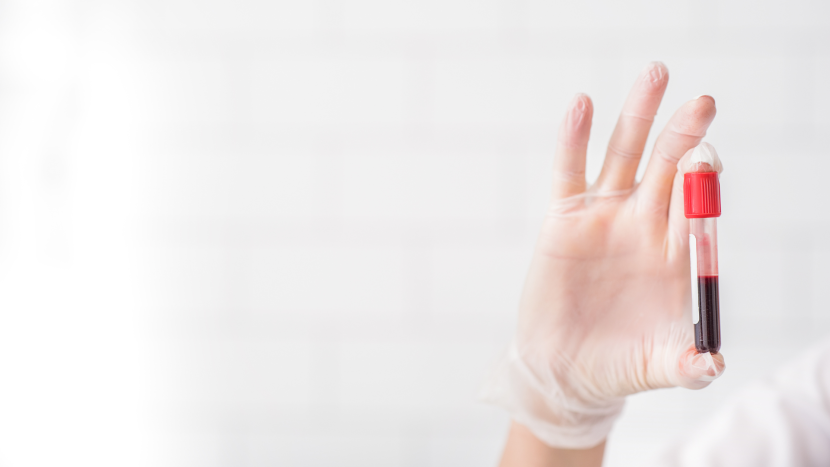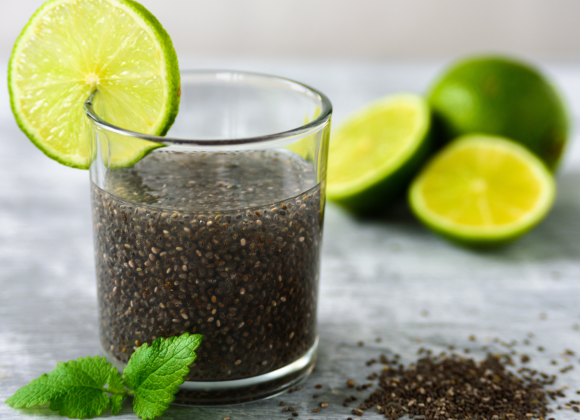Imagine going to donate blood, only to find out that your blood type is so rare that only a handful of people in the world have it! That’s exactly the case with the Bombay Blood Group—one of the rarest blood groups in the world.
Let’s dive deep into the mystery of this unique blood type, its discovery, why it’s so rare, and why it matters in medicine.
What Is the Bombay Blood Group?
Most of us are familiar with the four major blood groups: A, B, AB, and O. These are determined by the presence or absence of A and B antigens on red blood cells. However, what if someone has neither A, B, nor even the H antigen, which is found in all common blood types? That’s where the Bombay blood group comes in.
Unlike Type O blood (which lacks A and B antigens but has the H antigen), people with the Bombay blood group lack even the H antigen, making their blood completely different from the standard ABO system.
How Was It Discovered?
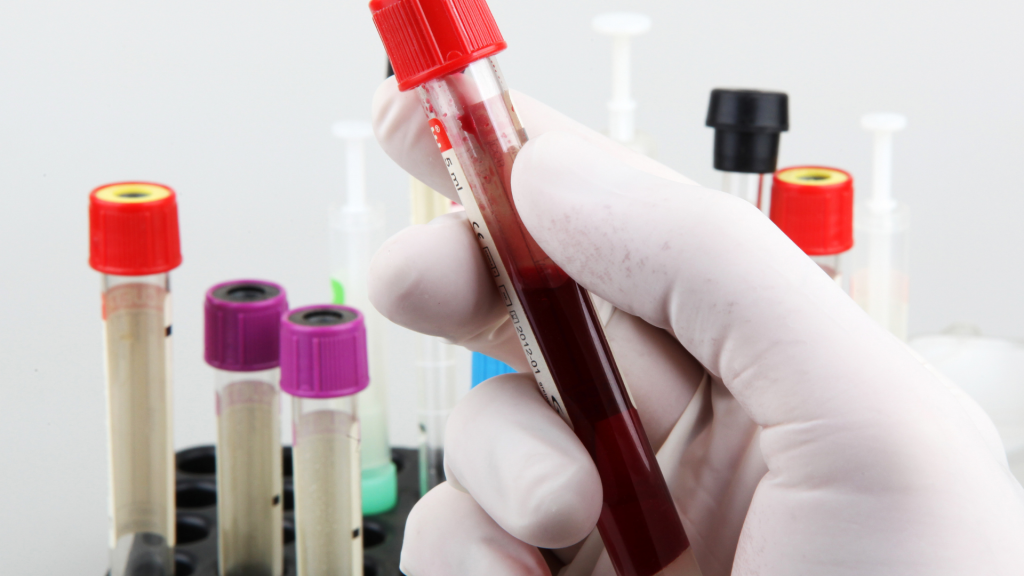
The Bombay blood group was first identified in 1952 in Bombay (now Mumbai), India, by Dr. Y.M. Bhende. During routine blood tests, doctors came across a patient who didn’t match any of the known blood types. Further testing revealed that these individuals were missing the H antigen, which led to the classification of the “Bombay Phenotype.”
How Rare Is It?
- The Bombay blood group is extremely rare, occurring in 1 in 10,000 Indians and 1 in a million worldwide.
- It is most commonly found in India, Sri Lanka, Pakistan, and parts of the Middle East due to consanguinity (marriages within the same community or family).
- Outside of these regions, finding a compatible donor is extremely difficult.
Blood Group Types
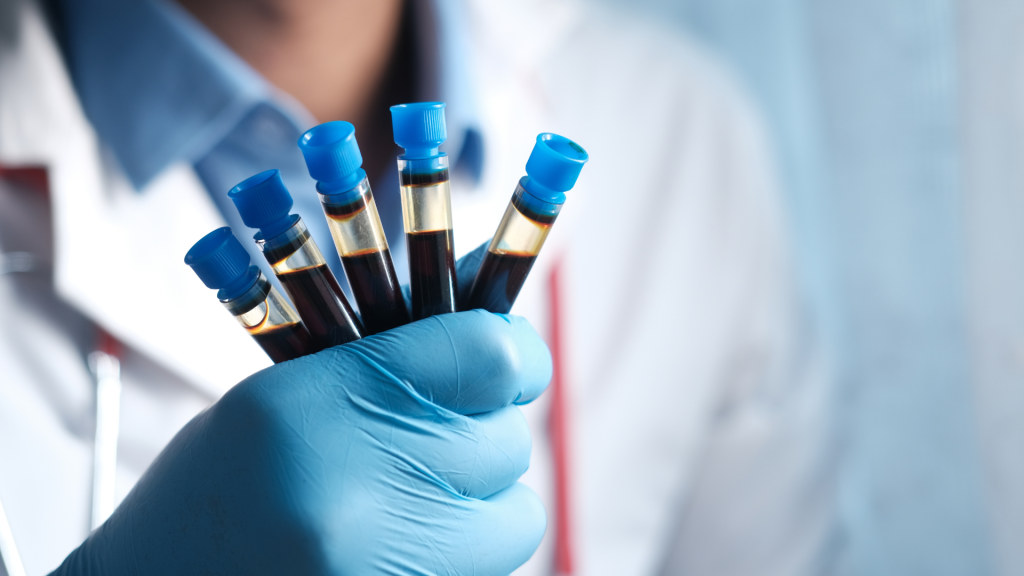
Blood groups are categorized into four main types: A, B, AB, and O. This classification was established between 1900 and 1902 by K. Landsteiner, who identified these distinct groups in human blood. Among these, blood group O lacks specific antigens, unlike groups A, B, and AB, which have their corresponding antigens. As a result, individuals with blood type O can donate blood to any other group, earning them the title of “universal donors.” Conversely, those with blood group AB can receive blood from all types—A, B, AB, and O—making them “universal recipients.”
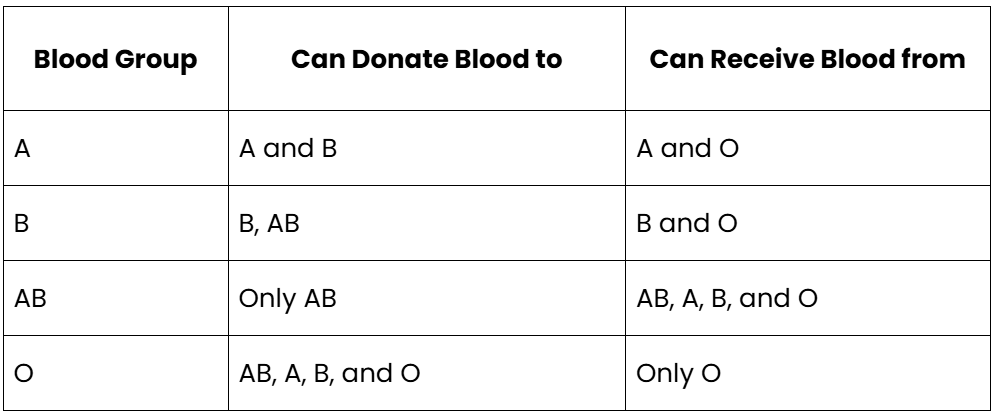
Why Is It Important in Blood Transfusion?
Since Bombay blood lacks the H antigen, people with this blood type cannot receive blood from any other group (not even O-negative!). They can only receive Bombay blood—which is extremely rare.
- This makes finding donors a major challenge.
- In emergencies, people with Bombay blood often struggle to find compatible blood, leading to urgent searches.
That’s why blood banks in India and specialized donor networks keep track of Bombay blood donors to ensure quick access during emergencies.
The Genetics Behind the Bombay Blood Group
The Bombay blood group is an autosomal recessive trait, meaning a person needs to inherit two defective genes (one from each parent) to have this blood type.
How does it work?
- In normal individuals, the H gene produces the H antigen, which is the foundation for A and B antigens.
- In people with Bombay blood, the H gene is missing, so they don’t produce the H antigen at all.
- Since A and B antigens depend on H, their blood type is neither A, B, AB, nor O.
Instead, it’s classified as Oh (Bombay phenotype) because their red blood cells lack all common blood group antigens.
Challenges Faced by Bombay Blood Group Individuals
Having such a rare blood type comes with unique challenges:
✅ Finding a Donor – Blood transfusion can be life-threatening if the wrong blood type is given. People with Bombay blood must rely on a small pool of donors worldwide.
✅ Lack of Awareness – Many doctors and hospitals aren’t aware of the Bombay blood group, leading to misdiagnosis or incorrect transfusions.
✅ Limited Blood Banking Facilities – Only a few blood banks worldwide store Bombay blood due to its rarity.
✅ Emergency Situations – In case of an accident, surgery, or major blood loss, the chances of finding a donor quickly are low, making awareness crucial.
Recent Medical Significance
- For the 1st Time in the World, MIOT International Successfully Performed an “Across-Blood Group Kidney Transplantation” in a recipient with the “Bombay O Blood Group”
- In February 2025, Jaslok Hospital in Mumbai successfully performed India’s first kidney transplant for the rare Bombay blood group, making medical history.
How to Raise Awareness & Help?
- Encourage Blood Donation: People with Bombay blood should register in donor databases to help others with the same blood type.
- Spread Awareness: Educate communities, doctors, and hospitals about this rare blood type.
- Create a Network: Blood banks and donor groups should maintain a global registry to connect Bombay blood donors and recipients.
- Genetic Counseling: Families with a history of Bombay blood should undergo genetic screening to understand inheritance patterns.
Fun Facts About the Bombay Blood Group
🩸 It is sometimes mistaken for O blood type in routine testing, leading to misclassification.
🩸 Even universal donors (O-negative) cannot donate to Bombay blood group individuals.
🩸 Since it’s genetically rare, certain communities in India have a higher frequency of the Bombay blood group.
Final Thoughts
The Bombay blood group is one of the rarest and most fascinating blood types in the world. Though it poses significant challenges, awareness and proper donor networks can make life easier for those with this condition.
So, next time you donate blood, you might just be a lifesaver for someone with this ultra-rare blood type! 💉❤️

